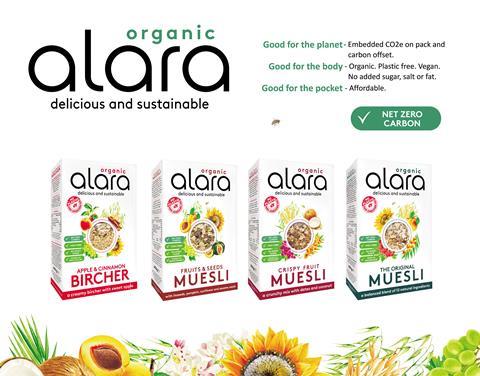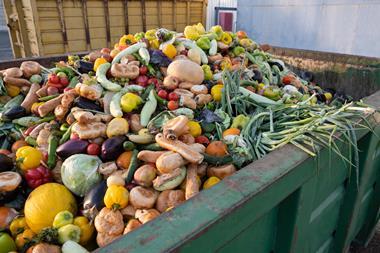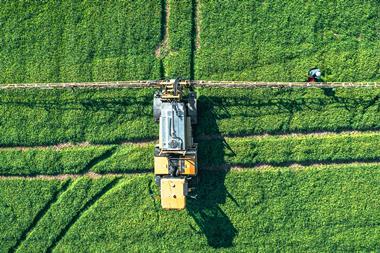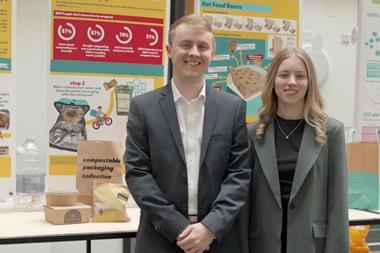In this category judges had the rather daunting task of comparing and contrasting the increasing number of sustainability initiatives that retailers, wholesalers and suppliers are engaged in to lower their environmental footprint, and to meet sustainability targets, whether set by themselves, their trade bodies, the government, or their customers

Winner: Alara - Grow Back Greener
Four decades of work went into Alara’s Grow Back Greener range – what is thought to be the industry’s first genuine net zero range in 2021.
The four-strong selection of organic cereals combines net zero status with an affordable price point. To achieve this, Alara partnered with Westminster University to create a methodology to calculate the precise amount of embedded CO2 in each of the 21 raw ingredients used in the cereals.
The next part was working to offset these emissions. The company parnered with deforestation charity Rainforest Saver to support the switch to Inga alley cropping in sub-Saharan Africa, Central and Southern America, to help farmers move away from slash and burn systems.
Having launched in January, the range is now in the likes of Sainsbury’s and Ocado – and Alara is sharing its work with others who want to follow suit.
Shortlisted:
Cranswick - Second Nature
Cranswick has managed to weave a focus on sustainability through almost every element of the business with its highly ambitious Second Nature framework.
All of the supplier’s 16 manufacturing sites are on track to achieve carbon neutrality. It has diverted enough food from waste to create over 500,000 donated meals, and it’s removed 1,493 tonnes of plastic across its operations since 2017.
Asda Stores - Asda Middleton, Reduce:Reuse:Recycle
Asda’s first sustainability trial store opened at Middleton last October. There’s 24 additional loose produce lines (in addition to the existing 43 available at all stores), including products from major brands Kellogg’s, Vimto and PG Tips; a secondhand clothing area; and outside Asda’s first reverse vending machine as well as 16 waste streams for harder-to-recycle items.
Piccolo Foods - Yellow & Go Fully Recyclable Pouch
The babyfood pouches that line supermarket aisles aren’t friendly to the planet. Which is why Piccolo made it its mission to come up with a sustainable alternative.
The ‘Yellow & Go’ pouches are mono-material (one single material instead of several) and contain no aluminium. This allows them to be made into new pouches an infinite number of times, meaning they’re also ‘closed loop’ recyclable.
Co-op - Project Closed Loop II
Co-op built on the success of its Project Closed Loop last year, focusing on helping customers tackle one of the hardest materials to recycle: plastic film and soft plastic.
A proof of concept trial was rolled out in 50 branches in September 2020. Bespoke soft plastic recycling bins were set up, with their presence communicated via a geo-targeted social media campaign. A full rollout is expected by the end of this year.
Pilgrim’s UK - Pilgrim’s UK 2030: Driving sustainability from farm to fork
Pork supplier Pilgrim’s UK wanted to accelerate its carbon reduction plans to cement its place as a leader in the field.
Setting out five key areas of focus over the next decade, the strategy includes a swathe of ambitious targets such as a 30% reduction in supply chain emissions by 2030 and a pledge to achieve net zero across the agricultural supply chain by 2035.

Grocer Gold Awards 2021: the winners

These are the winners of the Grocer Gold Awards 2021.
- 1
- 2
- 3
- 4
- 5
- 6
- 7
- 8
- 9
- 10
- 11
 Currently
reading
Currently
reading
Grocer Gold Awards 2021: Sustainability Initiative of the Year
- 13
- 14
- 15
- 16
- 17
- 18
- 19
- 20
- 21
- 22
- 23
- 24
- 25
- 26
- 27
- 28
- 29
- 30
- 31
- 32
















































































No comments yet